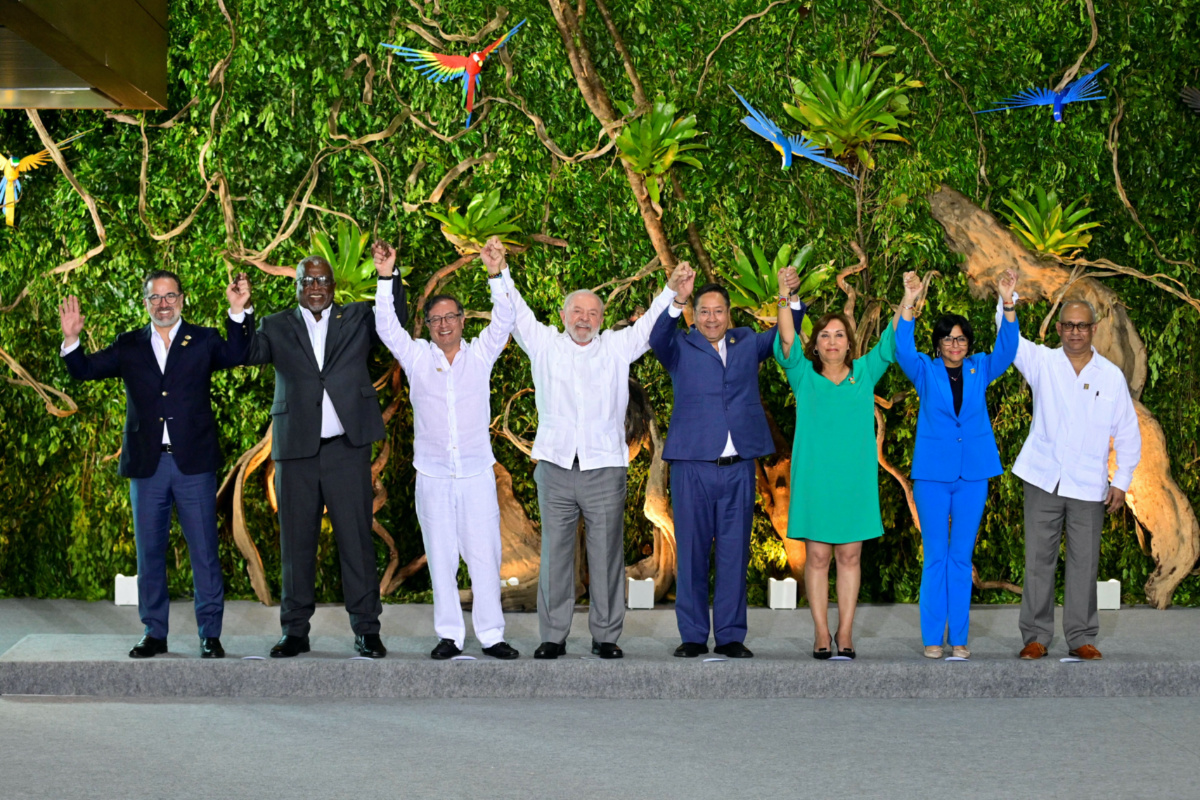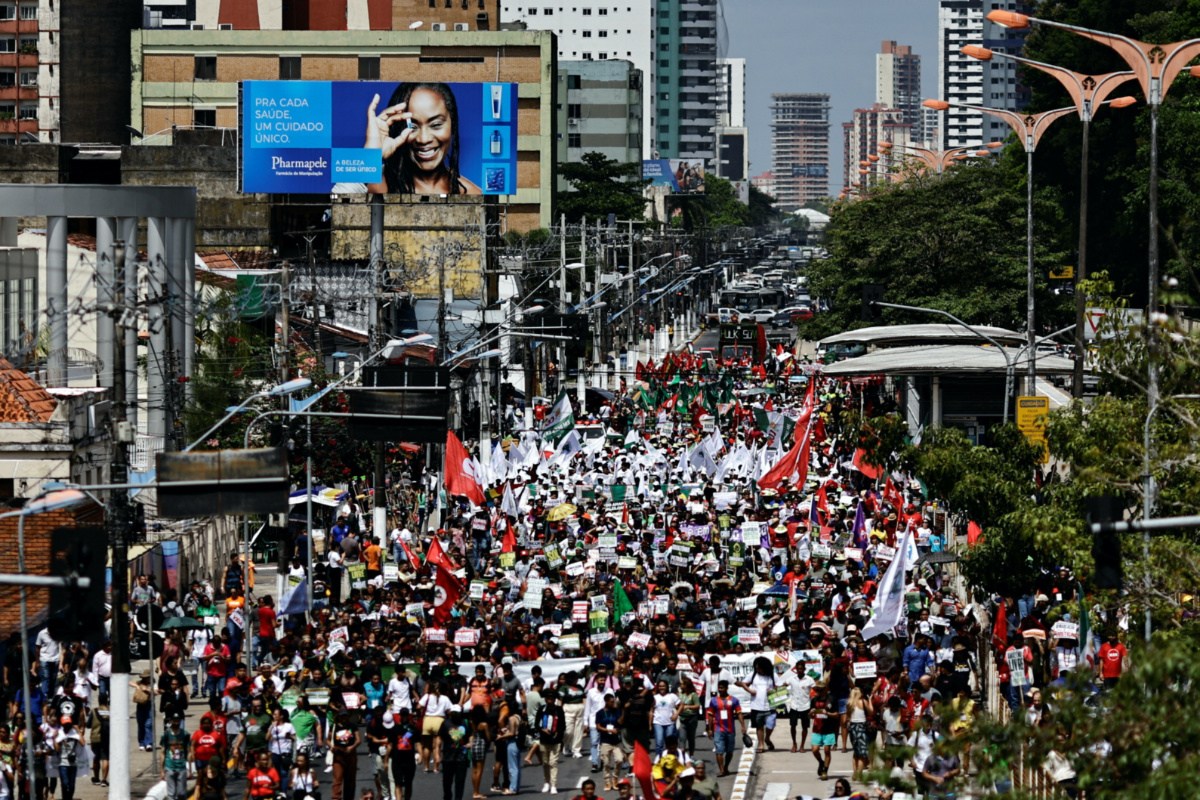Belem, Brazil
Reuters
Eight Amazon nations agreed to a list of unified policies and measures to bolster regional cooperation at a major rainforest summit in Brazil on Tuesday, but failed to agree on a common goal for ending deforestation.
Brazilian President Luiz Inacio Lula da Silva, who has staked his international reputation on improving Brazil’s environmental standing, had been pushing for the region to unite behind a common policy of ending deforestation by 2030 – one he has already adopted.

Ecuador’s Foreign Minister Gustavo Manrique, Guyana’s Prime Minister Mark Phillips, Colombia’s President Gustavo Petro, Brazil’s President Luiz Inacio Lula da Silva, Bolivia’s President Luis Arce, Peru’s President Dina Boluarte, Venezuela’s Vice President Delcy Rodriguez and Suriname’s Foreign Minister Albert Ramdin pose for a family photo at the summit of the Amazon Cooperation Treaty Organization, in Belem, Brazil, on 8th August, 2023. PICTURE: Cristian Garavito/Colombia Presidency/Handout via Reuters.
Instead, the joint declaration issued on Tuesday in the Brazilian city of Belem created an alliance for combating forest destruction, with countries left to pursue their own individual deforestation goals.
The failure of the eight Amazon countries to agree on a pact to protect their own forests points to the larger, global difficulties at forging an agreement to combat climate change. Many scientists say policymakers are acting too slowly to head off catastrophic global warming.
Lula and other national leaders left Tuesday’s meeting without commenting on the declaration. Presidents from Bolivia, Brazil, Colombia and Peru attended the summit, while Ecuador, Guyana, Suriname and Venezuela sent other top officials.
Brazil’s Foreign Minister Mauro Vieira said in a press briefing that the issue of deforestation “in no way whatsoever will divide the region” and cited “an understanding about deforestation” in the declaration, without elaborating.
This week’s summit brought together the Amazon Cooperation Treaty Organization for the first time in 14 years, with plans to reach a broad agreement on issues from fighting deforestation to financing sustainable development.
But tensions emerged in the lead up to the summit around diverging positions on deforestation and oil development.
Fellow Amazon countries also rebuffed Colombia’s leftist President Gustavo Petro’s ongoing campaign to end new oil development in the Amazon. In his speech on Tuesday, Petro likened the left’s desire to keep drilling for oil to the right-wing denial of climate science.
He said the idea of making a gradual “energy transition” away from fossil fuels was a way to delay the work needed to stop climate change.

Indigenous people take part in a march as the Amazon Summit kicks off in Belem, Para state, Brazil on 8th August, 2023 PICTURE: Reuters/Ueslei Marcelino
Brazil is weighing whether to develop a potentially huge offshore oil find near the mouth of the Amazon River and the country’s northern coast, which is dominated by rainforest.
“What we are discussing in Brazil today is of an extensive and large area – in my vision perhaps the last frontier of oil and gas before…the energy transition,” Brazil’s Energy Minister Alexandre Silveira told reporters after Petro’s speech.
Silveira said they should conduct research into what oil is there in order to make a decision on the issue.
We rely on our readers to fund Sight's work - become a financial supporter today!
For more information, head to our Subscriber's page.
Beyond deforestation, the summit also did not fix a deadline on ending illegal gold mining, although leaders agreed to cooperate on the issue and to better combat cross-border environmental crime.
The final joint statement, called the Belem Declaration, strongly asserted indigenous rights and protections, while also agreeing to cooperate on water management, health, common negotiating positions at climate summits, and sustainable development.
As Reuters previously reported, the declaration additionally established a science body to meet annually and produce authoritative reports on science related to the Amazon rainforest, akin to the United Nations’ International Panel on Climate Change.
– Additional reporting by STEVEN GRATTAN






